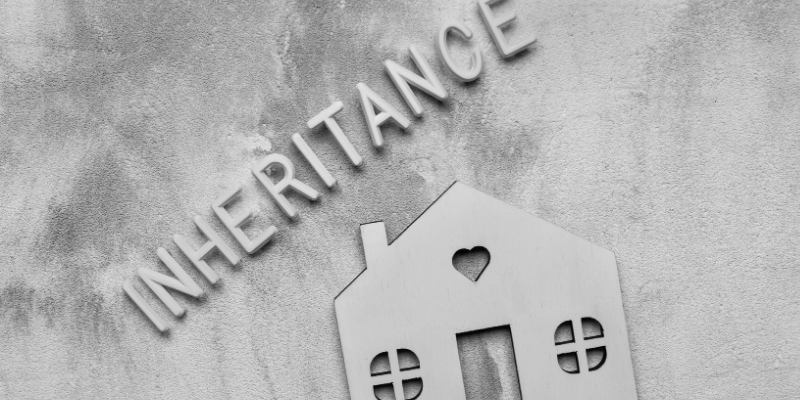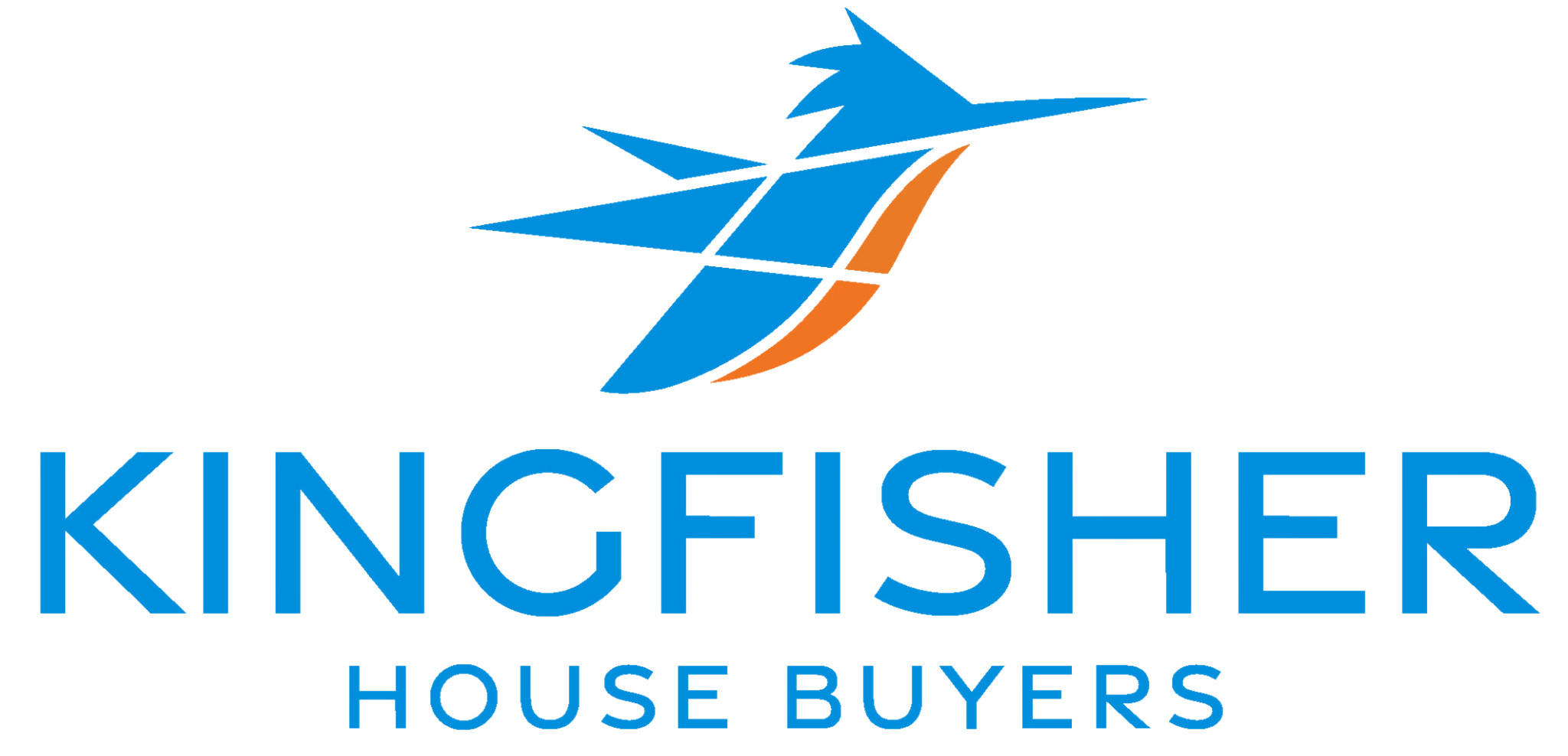
Understanding the Legal Process of Selling Inherited Property
Selling an inherited house in Virginia’s real estate market involves navigating a complex legal process that requires a clear understanding of state-specific probate laws and regulations. First, it is essential to determine whether the inherited property must go through probate, as this legal procedure validates the decedent’s will and facilitates the transfer of ownership.
In cases where the deceased left a will, executors must obtain authorization from the probate court to act on behalf of the estate. Heirs may need to petition for administration rights if there is no will.
Understanding tax implications is also crucial; Virginia imposes certain inheritance and estate taxes that can affect property sales. Additionally, potential sellers should be aware of any outstanding debts or liens attached to the inherited house, as these must be resolved before proceeding with the sale.
Consulting with a knowledgeable real estate attorney can help navigate these legal intricacies and ensure compliance with all requirements when selling an inherited property in Virginia.
Navigating Probate When Selling Inherited Real Estate
Selling an inherited house in Virginia’s real estate market involves navigating the complexities of probate, a legal process that can significantly impact property transactions. Understanding the probate process is crucial for selling inherited real estate in Virginia.
Probate ensures that a deceased person’s assets, including any real estate, are distributed according to their will or state law if no will exists. Executors or personal representatives must first be appointed by the court to manage the estate, including selling any property.
To streamline this process, it’s essential to obtain proper legal advice and work with an experienced real estate agent familiar with Virginia’s specific probate laws. The executor must also ensure all debts and taxes associated with the estate are settled before proceeding with the house sale.
This often requires obtaining a property appraisal and filing necessary documents with the local court. Finally, understanding how inheritance laws affect taxation is vital; capital gains taxes may apply depending on how long you’ve held onto the property and its appreciation since acquisition.
Navigating these probate intricacies smoothly can help facilitate a smoother sale in Virginia’s competitive real estate market.
Legal Documents Required for Selling an Inherited House

When selling an inherited house in Virginia’s real estate market, it’s crucial to understand the legal documents required for a smooth transaction. First and foremost, the executor or administrator of the estate must have a certified copy of the death certificate, which verifies the original owner’s passing.
Additionally, the will is essential if it designates heirs or specifies terms for property transfer. In cases without a will, probate court documents are necessary to establish rightful ownership.
The executor should also obtain letters of administration or letters testamentary to demonstrate their authority to sell the property. Ensuring a clear title is essential by obtaining a title search, and addressing any liens or encumbrances that might affect ownership rights is necessary.
A formal appraisal can help determine fair market value and support negotiations with potential buyers. Working with an experienced real estate attorney can be invaluable, as they guide you through these legal processes and ensure compliance with Virginia’s specific regulations concerning inherited properties.
How to Determine the Value of Inherited Property
Determining the value of an inherited property in Virginia’s real estate market is a crucial step for anyone looking to sell. Start by obtaining a professional appraisal, which objectively assesses the home’s worth based on its condition, location, and market trends.
Additionally, consult with Kingfisher House Buyers that has expertise in Virginia’s unique housing market; their insights can help you understand comparable sales in the area. Consider the property’s historical significance or any distinctive features affecting its value.
Reviewing recent sales data for similar homes in the neighborhood is also beneficial to gauge current demand and pricing trends. Don’t overlook potential tax implications when calculating the property’s value, as these can significantly impact your net proceeds from the sale.
If you’re unsure how to proceed after determining the value of your inherited property in Virginia, professional guidance can simplify the process. From legal requirements to market timing and selling strategies, working with experts ensures you make well-informed decisions. Whether you’re preparing the home for sale or need clarity on your options, don’t hesitate to contact us for personalized support tailored to your situation.
Preparing an Inherited Home for Sale: Tips and Tricks
Preparing an inherited home for sale in Virginia’s real estate market requires strategic planning and attention to detail. Start by thoroughly decluttering the property, removing personal items, and creating a neutral space that appeals to potential buyers.
It’s essential to address any necessary repairs or maintenance issues, ensuring the home is in good condition. Consider updating outdated features with modern touches to enhance the property’s appeal.
Hiring a professional appraiser can provide an accurate valuation, helping you set a competitive listing price. Home staging can also make a significant difference; well-placed furniture and decor can highlight the property’s best features and create an inviting atmosphere.
Working with a local real estate agent who understands Virginia’s market trends can offer valuable insights and marketing strategies tailored to your needs. Curb appeal should not be overlooked, as first impressions are crucial; invest in landscaping and exterior improvements that make the house stand out.
Marketing Strategies for Selling an Inherited Home Quickly

Employing effective marketing strategies is crucial for selling an inherited house quickly in Virginia’s real estate market. First, consider staging the home to highlight its best features and create an inviting atmosphere for potential buyers.
Professional photography can capture high-quality images that showcase the property online, making it stand out on popular real estate platforms. Utilizing social media channels and traditional marketing methods expands your reach, targeting local buyers and those relocating to Virginia.
Collaborating with a skilled real estate agent who understands the nuances of the Virginia market can provide valuable insights and access to a broader network of potential buyers. Hosting open houses or virtual tours allows interested parties to experience the home firsthand, increasing engagement and interest.
Craft compelling property descriptions emphasizing unique attributes such as historical value or desirable neighborhood amenities, appealing directly to buyer motivations in this competitive landscape. One proven approach is working with cash home buyers in Fredericksburg and nearby cities, who are often ready to purchase quickly and with fewer contingencies.
Tax Implications of Selling an Inherited House
Selling an inherited house in Virginia can have significant tax implications that sellers must understand to navigate the real estate market effectively. When you sell an inherited property, you may be subject to capital gains tax, which is calculated based on the difference between the sale price and the stepped-up basis of the property.
The stepped-up basis is typically the fair market value of the home at the time of inheritance, which can greatly affect your taxable gain. It’s crucial to consult with a tax advisor familiar with Virginia’s real estate laws to ensure compliance and potentially benefit from any applicable exemptions or deductions.
Additionally, understanding federal estate tax regulations and how they interact with Virginia state taxes can help you make informed decisions, especially if multiple heirs are involved. Proper documentation and appraisal can further streamline the process, avoiding unnecessary complications during the transaction.
Being aware of these tax implications not only helps in aligning with IRS requirements but also aids in maximizing financial returns when selling an inherited house in Virginia’s competitive real estate market.
Understanding Capital Gains Tax on Inherited Properties
Understanding capital gains tax is crucial when selling an inherited house in Virginia’s real estate market. Capital gains tax applies to the profit made from selling a property, and for inherited homes, this calculation starts with the property’s stepped-up basis.
The stepped-up basis refers to the property’s market value at the time of inheritance rather than its original purchase price. This adjustment can significantly impact the amount of taxable gain when you sell the property.
In Virginia, like elsewhere in the U.S., you will only pay capital gains tax on any appreciation after you inherit the home. To accurately determine potential tax obligations, it’s essential to keep detailed records of any improvements or investments made in the property, as these can be added to your basis and reduce taxable gains.
Consulting with a tax professional familiar with Virginia real estate laws ensures you navigate these complexities effectively while maximizing your financial return when selling an inherited property.
Financial Considerations When Selling Inherited Real Estate

When selling an inherited house in Virginia’s real estate market, it’s crucial to understand the various financial considerations involved. First and foremost, determining the property’s fair market value is essential for setting a competitive asking price.
Engaging a professional appraiser can provide an accurate valuation, which helps avoid pricing the home too high or too low. Additionally, sellers should be aware of potential capital gains taxes that may arise from the sale of inherited real estate.
Calculating any tax implications based on the property’s stepped-up basis at the time of inheritance is important. Consulting with a tax advisor can clarify how these taxes might affect your net proceeds.
Furthermore, preparing the home for sale often involves repairs, maintenance, and staging costs that can enhance its appeal to buyers. Understanding these expenses beforehand ensures better budgeting and financial planning throughout the selling process.
Lastly, working with cash home buyers in Richmond and neighboring cities can help expedite the process and minimize unexpected costs, maximizing your financial return from selling inherited property.
Common Challenges in Selling an Inherited House
Selling an inherited house in Virginia’s real estate market presents several common challenges that can complicate the process. One major issue is emotional attachment, as sellers often have personal connections to the property, making it difficult to make objective decisions.
Additionally, inherited homes may require significant repairs or updates to meet current market standards, which can be time-consuming and costly. If the house is with tenants, coordinating showings and navigating lease agreements adds another layer of complexity, particularly when trying to sell the property while it’s still occupied.
Understanding tax implications, such as capital gains taxes and potential inheritance taxes in Virginia, adds another layer of complexity. Furthermore, accurately assessing the property’s value is crucial but challenging without professional appraisals, leading to pricing errors that affect marketability.
Managing these issues requires careful planning and often expert advice from real estate professionals familiar with Virginia’s specific regulations and market trends.
Steps to Take After Deciding to Sell Your Inheritance
Once you’ve decided to sell your inherited house in Virginia, taking several strategic steps is crucial to ensure a successful transaction in the local real estate market. Begin by assessing the property’s current condition and consider making necessary repairs or upgrades to enhance its value and appeal to potential buyers.
It’s wise to hire a professional appraiser who can provide an accurate market value for the inherited property, as this will help set a competitive listing price. Consulting with a real estate agent with expertise in Virginia’s housing market is also essential; they can offer valuable insights into pricing strategies, marketing techniques, and the nuances of local regulations.
Additionally, gather all relevant documents related to the inheritance, such as the will or probate records, and any existing mortgage details or liens on the property. Addressing any outstanding legal issues early on will streamline the selling process.
Finally, consider staging the home professionally to showcase its best features and attract more interest from prospective buyers in Virginia’s competitive real estate landscape. By following these steps diligently, you position yourself for a successful sale while maximizing returns on your inherited asset.
How to Avoid Paying Capital Gains Tax on Inherited Property in Virginia?
When selling an inherited house in Virginia, understanding how to minimize or avoid paying capital gains tax can significantly impact your financial outcome. Inherited property typically receives a “step-up” in basis, which means the property’s value is adjusted to its market value at the time of inheritance rather than its original purchase price.
This adjustment can reduce the capital gains tax owed when selling the property. To further mitigate taxes, consider living in the home for at least two years to qualify for the primary residence exclusion, which allows single filers to exclude up to $250,000 and married couples up to $500,000 of capital gains from taxation.
Additionally, if you plan on reinvesting, explore using a 1031 exchange to defer taxes by purchasing a new investment property with the proceeds from the sale. Consulting with a real estate attorney or tax advisor familiar with Virginia’s real estate market and tax laws can provide tailored strategies and ensure compliance with all legal requirements while maximizing your financial benefits.
Do All Heirs Have to Agree to Sell Property in Virginia After?
When selling an inherited house in Virginia, it’s crucial to understand that all heirs must agree on selling the property. In Virginia’s real estate market, consensus among heirs is necessary because each heir holds a legal interest in the inherited property.
If even one heir disagrees with selling the inherited house, it can significantly complicate or delay the process. To facilitate a smooth transaction, heirs should communicate openly and possibly seek mediation if disputes arise.
Consulting with a real estate attorney familiar with Virginia’s inheritance laws can provide clarity and ensure that all legal requirements are met before proceeding with the sale. This expert guidance helps prevent potential conflicts and ensures compliance with state regulations when selling an inherited home in Virginia’s competitive real estate market. For a smooth experience, beginning with a solid understanding of Virginia inheritance laws is essential, as it lays the groundwork for informed decision-making.
Do I Pay Taxes on the Sale of a House That I Inherited?
It is important to know the tax consequences involved when selling an inherited house in Virginia’s real estate market. Usually, when a house is inherited, its cost basis is the fair market value of the property at the time of the owner’s death, which is considered the fair market value of the house.
This step-up in basis has a tremendous impact on the capital gains tax potentially owed on selling the inherited property. If the sales price exceeds this stepped-up basis, you may owe capital gains tax on the difference.
It should be mentioned that Virginia follows federal laws concerning capital gains taxation on the sale of inherited properties. It is always advisable to work with a tax expert who understands the nuances of Virginia real estate dealings to shed light on possible tax liabilities and help navigate both state and federal legal regulations.
Moreover, selling an inherited house in Virginia poses unique, competitively priced tax considerations, especially if one qualifies under the primary residence exemptions listed below. Understanding available deductions and criteria can greatly change the tax responsibility.
What Is the First Thing You Do When You Inherit a House?
The first step you should take while inheriting a house in Virginia is to thoroughly inspect the property to evaluate its condition and appreciate its value in the market. First, you should get an appraisal to see how much the house is worth in Virginia’s real estate market.
Evaluate outstanding mortgages or liens, if any, associated with the inherited house’s debt. After knowing the whole picture, seeking guidance from a real estate lawyer specializing in inheritance law is essential.
Look to see if necessary changes need to be made to improve the house’s marketability and maximize value. Remember the tax consequences; speak to a tax attorney about the capital gains or estate taxes that would come with selling an inherited property.
With all of these steps taken, you will have a better chance of claiming an inheritance of a house in Virginia’s competitively advanced real estate market.
Are you looking to sell your home? Kingfisher House Buyers will pay cash offers without worrying about home repairs or any additional work on your end. We pay cash, and we take care of all the hassles of paperwork, making it an easy process for you. If you have any questions or concerns, please do not hesitate to call us at (540) 755-4099. We offer you no-obligation quotes, so give us a call and get started today.
Helpful Virginia Blog Articles
- Taxes On Selling Your Home In Virginia
- Selling An Inherited House In Virginia
- House Sale Contingencies In Virginia
- Attorney Fees For House Closings In Virginia
- Selling A Home With Code Violations in Virginia
- Selling Your Virginia Home With Unpermitted Work
- Selling a Home With Foundation Problems in Virginia
- Understanding Virginia Inheritance Laws
- Sell Your House Below Appraised Value In Virginia
- Paperwork For Selling Your Home By Owner in Virginia
- Selling Your Virginia Home With Tenants
- Virginia’s Rules And Risks For Leaving Your House Vacant

| INHERITING | HEIRSHIP | LEVIED | MORTGAGE LOAN | DEED | UNINSURED |
| INSURANCE | INSURE | INSURANCE COMPANY | POLICYHOLDER | INSURANCE AGENT | PREMIUM |
| LOAN | LENDER | PROPERTY TAX | PROPERTY TAXES | FORECLOSURE | FORECLOSURE SALE |
| NEGOTIATING | ATTORNEYS | BENEFICIARY | BENEFICIARIES | RISK | |
| PROPERTY VALUE | TRUST | REVOCABLE LIVING TRUST | REVOCABLE LIVING TRUST | TRANSFER TAX | TAX RATE |
| TAX BENEFITS | SPOUSE | LIABILITIES | RIGHT OF SURVIVORSHIP | JOINT TENANCY | SURVIVORSHIP |
| CHILDREN | CHILD | CHILDHOOD | VALUATIONS | ASSET VALUATION | TITLE INSURANCE |
| TITLE COMPANIES | STEPPED UP BASIS | UTILITIES | PERCENTAGE | HOMEOWNER | FSBO |
| FOR SALE BY OWNER | EQUITY | COMPANY | APARTMENTS | AN INHERITANCE TAX | IN VIRGINIA THE |
| IN VIRGINIA IS | PROBATE PROCESS IN VIRGINIA | GET THE BEST PRICE | THE PROBATE PROCESS IN | VALUE OF THE ESTATE | THE VALUE OF THE |
| SELLING INHERITED PROPERTY IN | VIRGINIA DOES NOT IMPOSE |
